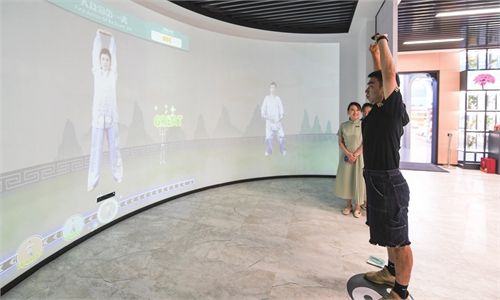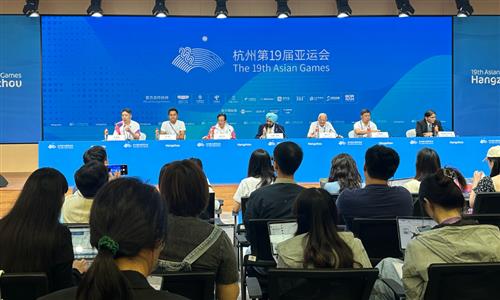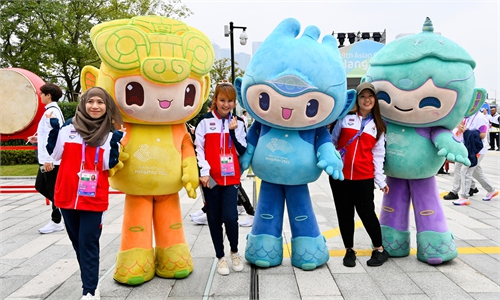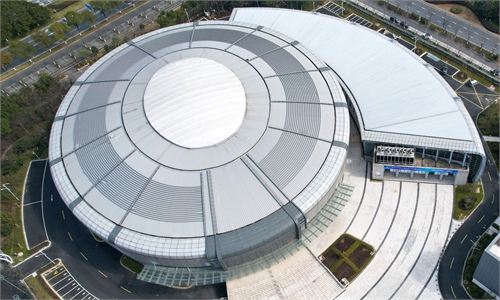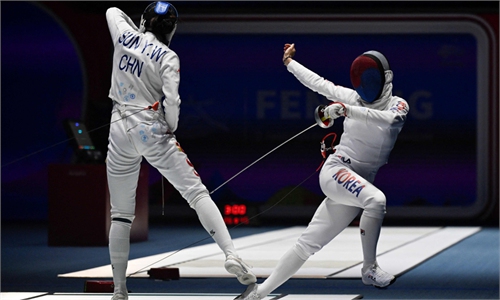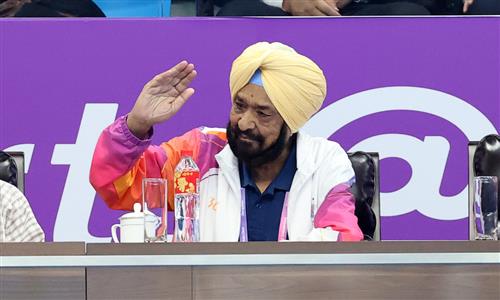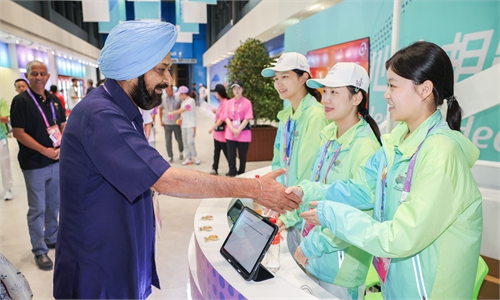ARTS / CULTURE & LEISURE
Traditional folk sports gain popularity at Hangzhou Asian Games
Kabaddi, kurash and more sparking joy of competition
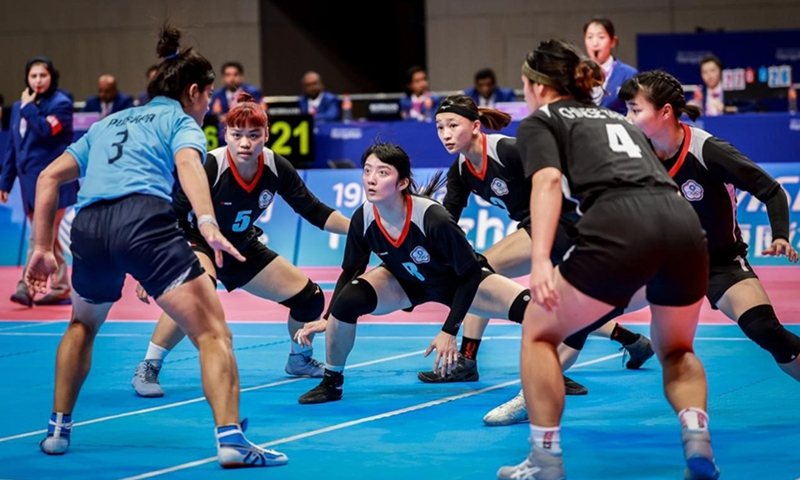
Currently, some non-Olympic events such as kabaddi, sepaktakraw and kurash are gaining popularity at the 19th Asian Games in Hangzhou, East China's Zhejiang Province, adding a touch of joy to the intense athletic competition and creating new platforms for cultural exchanges.
Kabaddi, for example, which is highly competitive and also known as the upgraded version of the break-neck "eagle stresses chickling game," has attracted a lot of attention at the Hangzhou Games. Looking at official ticket sales for the events, the tickets for the kabaddi competition, which took place from Monday to Saturday, were sold out before September 24, the first match day of the Games.
After the first match of the women's team group B in the kabaddi event on Monday, the winning Nepalese team expressed gratitude to the spectators for cheering them on.
Although kabaddi is not very popular in China, the atmosphere at the competition venue was lively. The organizing group of the event specially provided Chinese commentary so that the audience could cheer and applaud the athletes' excellent performances.
Prior to the opening of the Hangzhou Asian Games, the Xiaoshan district in Hangzhou held more than 100 kabaddi events in schools and villages. Wang Yubin, the deputy secretary-general of the National Kabaddi Sports Promotion Committee, said in an interview with media that more than 500 schools in China have participated in the promotion of kabaddi.
"Kabaddi requires both teamwork and individual skills, and some children have become addicted to it," Wang said.
Another sport that has deeply impressed the audience is sepaktakraw. After a match on September 27, Thai sepaktakraw player Sakha Siriwat expressed his gratitude for the support he received from the spectators.
Modern sepaktakraw, also known as "kick volleyball," originated in the Malacca region in the 15th century and has a deep tradition and mass base in Southeast Asia.
It became an official event of the Asian Games for the first time at the 1990 Beijing Asian Games, which not only promoted the development of sepaktakraw but also allowed the sport to take root in China.
"The General Administration of Sport of China is committed to introducing other excellent traditional events from other countries, regions, and ethnic groups and promoting them in China," said He Fengxiang, the leader of the Chinese sepaktakraw team.
Driven by the Hangzhou Asian Games, more fitness institutions in China have begun to promote sepakyakraw.
At the Hangzhou Asian Games, kurash, a highly competitive sport that combines strength and technique, has attracted 91 athletes from 21 countries and regions to participate in seven events, making history at the Asian Games.
In the women's 70kg event of kurash on Sunday, Chinese athlete Yu Dan won the first gold medal in kurash in the history of the Asian Games.
Zhang Huayu, a 27-year-old Hangzhou resident who bought tickets to watch the kurash competition, told the Global Times that for her, it doesn't matter if she could immediately understa nd the competition, what matters is experiencing the atmosphere of the competition and the pure joy that comes from sports.
According to the Hangzhou Asian Games Organizing Committee, in order to meet the needs of viewers in different regions and age groups, the Hangzhou Asian Games has set up nine non-Olympic events, including wushu, sepaktakraw and kabaddi, in addition to the 31 events that will appear at the upcoming Paris Olympic Games. The events have evolved from local folk sports activities in various regions of Asia and have a long history and a strong mass base.
"The Hangzhou Asian Games presented a diverse and inclusive sports event to the audience. We are not obsessed with victory or defeat in these events, but rather want to feel the atmosphere of the competition and the pure joy that comes from those sports," Zhang said.
